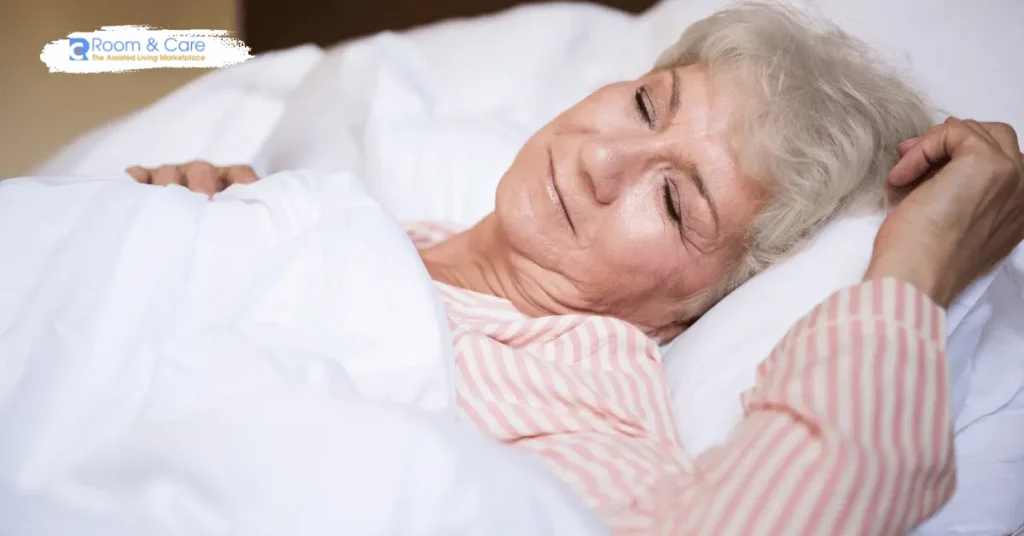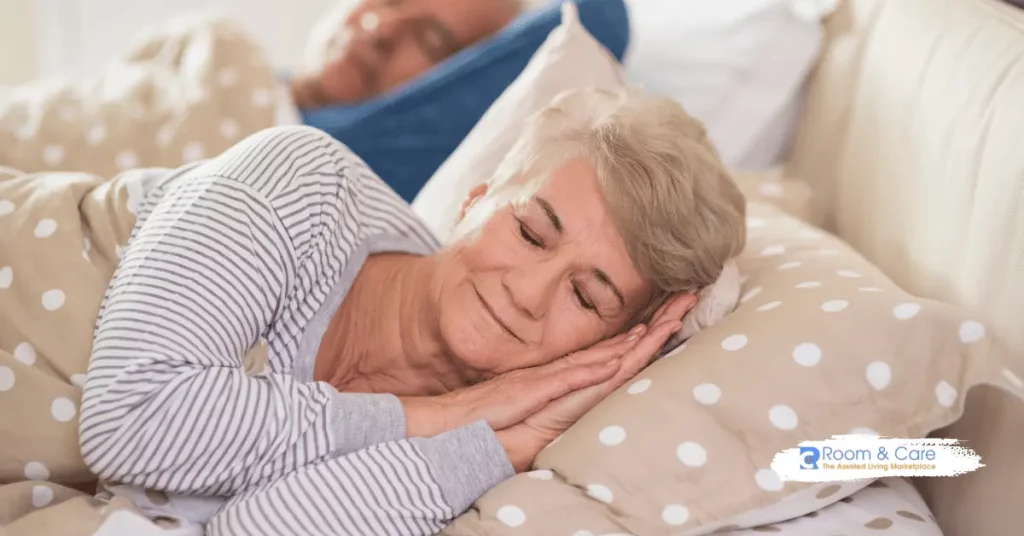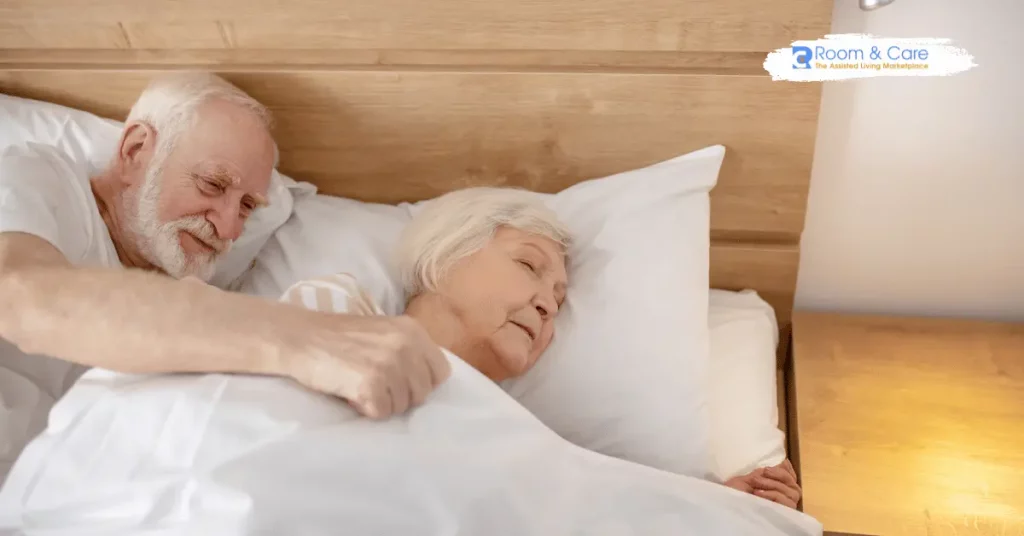

A good night’s sleep is essential at any age, but it becomes even more important as we grow older. Sleep impacts our physical health, mental well-being, and overall quality of life. For seniors, achieving restful and restorative sleep can sometimes be a challenge due to factors such as changing sleep patterns, health issues, or lifestyle adjustments. In this blog post, we will explore practical sleeping tips for seniors to help improve sleep quality and ensure they wake up feeling refreshed and energized.
As we age, our sleep patterns naturally change. This is due to shifts in the body’s internal clock, or circadian rhythm, which can lead to earlier bedtimes and wake-up times. Additionally, seniors may experience:
Decreased deep sleep: The amount of restorative deep sleep tends to decrease with age, resulting in more light sleep.
Frequent awakenings: Medical conditions like arthritis, sleep apnea, or the need to use the bathroom can interrupt sleep.
Medications: Certain prescriptions may cause insomnia or disrupt natural sleep cycles.
Despite these challenges, there are many ways to improve sleep quality, ensuring seniors enjoy the rest they need.
One of the first steps to better sleep is creating an environment conducive to relaxation. Here’s how:
Comfortable mattress and pillows: Invest in a high-quality mattress and supportive pillows suited to individual preferences and health needs.
Temperature control: Keep the room cool, as a temperature of 60-67°F is ideal for sleep.
Noise reduction: Use white noise machines or earplugs to block out disruptive sounds.
Lighting: Install blackout curtains or use an eye mask to eliminate light.
Exposure to screens before bedtime can interfere with the production of melatonin, the hormone responsible for regulating sleep. Encourage:
Avoiding screens for at least an hour before bed.
Engaging in calming activities like reading a book or listening to soft music instead.
Maintain a consistent bedtime and wake-up time, even on weekends. This helps regulate the internal clock and improves overall sleep quality.
Engage in relaxing activities such as taking a warm bath, practicing meditation, or performing light stretches.
Avoid heavy meals, caffeine, and alcohol close to bedtime.
Regular physical activity can promote better sleep by reducing stress and improving overall health. Encourage activities like:
Walking, swimming, or yoga.
Participating in group exercises or community activities.
Stress and anxiety can hinder restful sleep. Techniques like mindfulness meditation, deep breathing exercises, or journaling before bed can calm the mind and prepare the body for sleep.
Certain foods can promote sleep, while others may disrupt it. Seniors should:
Include sleep-promoting foods: Incorporate foods rich in magnesium, tryptophan, or melatonin, such as almonds, bananas, cherries, and oats.
Avoid late-night snacking: Eating heavy meals close to bedtime can lead to discomfort and disrupt sleep.
Stay hydrated: Drink enough water during the day but limit fluids in the evening to reduce nighttime trips to the bathroom.
Limit stimulants: Avoid caffeine and nicotine in the afternoon and evening to prevent sleep disturbances.

Health issues can significantly impact sleep quality. Seniors should:
Consult healthcare providers: Address underlying health conditions such as sleep apnea, restless leg syndrome, or chronic pain.
Review medications: Discuss with a doctor whether medications could be contributing to sleep problems.
Consider therapy: Cognitive Behavioral Therapy for Insomnia (CBT-I) can help seniors develop better sleep habits and address negative thoughts about sleep.
Use assistive devices: Devices like CPAP machines for sleep apnea or specialized pillows for neck and back support can make a significant difference.
For some seniors, living arrangements can greatly impact sleep quality. Assisted living facilities, nursing homes, or adult family homes offer structured environments that promote healthy routines and support sleep needs.
Personalized care: Staff can assist with managing sleep-related health issues.
Safe environment: Ensures minimal disturbances and a secure setting for restful nights.
Community engagement: Social activities reduce loneliness, which can positively impact sleep.
If you or a loved one is exploring care options, Room and Care offers a comprehensive platform to find the best assisted living facilities, adult family homes, memory care facilities, and more. With no referral fees or middlemen, Room and Care ensures affordable and direct access to quality care.
Caregivers play a crucial role in helping seniors improve their sleep. Here’s how they can support:
Monitor sleep patterns: Keep a sleep diary to track changes and identify patterns.
Encourage routines: Help establish and maintain consistent schedules.
Provide emotional support: Address anxieties or fears that may be keeping seniors awake.
Assist with health management: Ensure regular check-ups and follow medical advice for sleep-related issues.
Create a relaxing bedtime environment: Dim lights, reduce noise, and encourage calming activities before bed.

Seniors may face sleep difficulties due to changes in circadian rhythms, medical conditions, medications, or lifestyle factors. Addressing these issues with healthy habits and medical guidance can help.
Most seniors require 7-8 hours of sleep per night, though individual needs may vary.
Short naps (20-30 minutes) can be refreshing and beneficial, but long or late-afternoon naps may interfere with nighttime sleep.
Yes, certain foods can promote sleep, while others, like caffeine or heavy meals, may disrupt it. Maintaining a balanced diet is crucial for overall health and sleep quality.
Caregivers can assist by monitoring sleep patterns, encouraging routines, creating a relaxing bedtime environment, and addressing medical or emotional concerns that may impact sleep.
Achieving restful sleep is possible for seniors with the right strategies and support. By creating a sleep-friendly environment, adopting healthy routines, addressing medical concerns, and considering the benefits of assisted living options, seniors can enjoy better nights and brighter days.
If you’re exploring care options for yourself or a loved one, visit Room and Care. Our platform connects you directly with the best care facilities, ensuring quality, affordability, and peace of mind without any referral fees or middlemen.